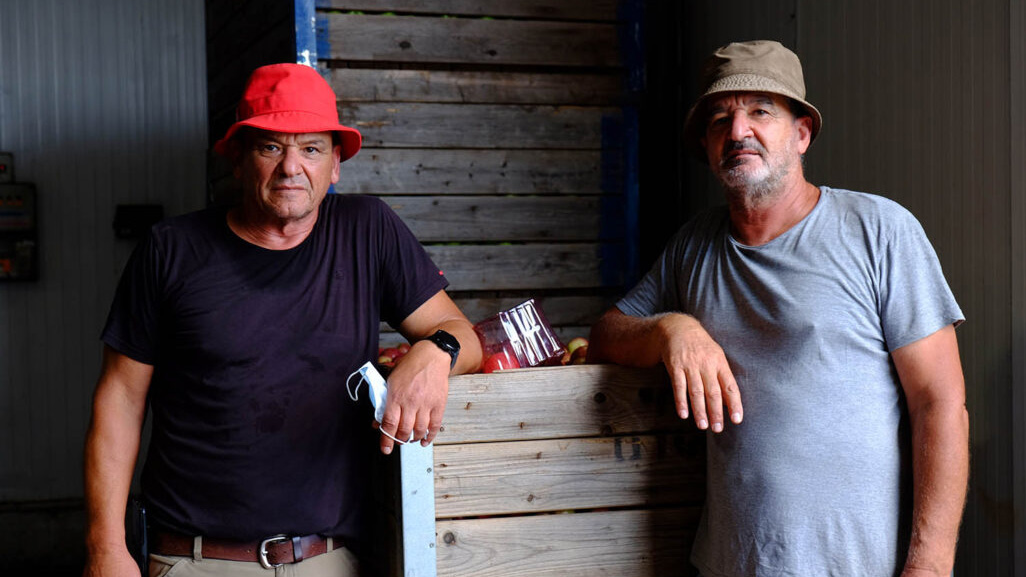
“People think we are earning millions,” Nili Tenebaum muses, as she looks past her fruit orchard towards a water tower painted with a Lebanese flag, just over the border.
Tennenbaum has been growing and researching new crops for over 20 years in the orchards of Kibbutz Manara in northern Israel, experimenting with new varieties and growing methods. The orchard has a staff of six permanent workers but it serves as a source of livelihood for hundreds of temporary workers from the area during the harvesting and pruning seasons.
Although Manara is located in one of the coldest parts of the country, and Hezbollah snipers and tunnels pose a constant threat, the orchard is considered one of the leading “laboratories” of agricultural innovation in the country for growing varieties of apples.
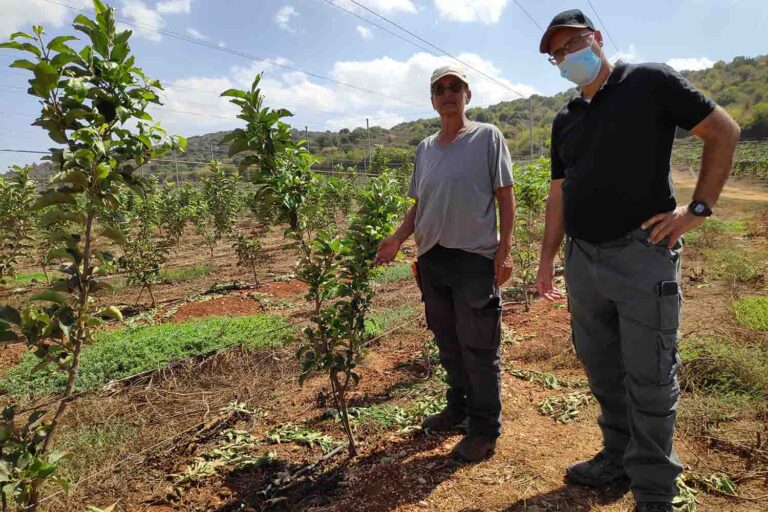
“Farmers these days earn pennies, but my friends make comments that since the nectarines are expensive this year, I must have earned a lot of money,” said Tennenbaum, laughing cynically.
“People don’t understand that agriculture must remain in the country, especially right now during the COVID-19 pandemic, after we all saw how everything closed down. We must have the ability to grow our own food,” she continued.
Tennenbaum, and many other farmers, have reacted strongly against a new and highly controversial proposed agricultural reform, part of the Arrangements’ Law which has passed its first reading in the Knesset along with the budget. The reform, proposed by Finance Minister Avigdor Lieberman, proposes a five year plan to lower tariffs on agricultural imports including eggs, poultry, vegetables and fruits, aimed to increase competition and lower prices for consumers. Farmers, however, claim that this measure all but destroys their ability to compete effectively with cheaper European imports, and would cause irreparable damage to a sector already struggling to stay afloat.
MK Michael Bitton (Blue and White) has since formed an agreement with Lieberman that the issue must be discussed separately from the Arrangements’ Law in the Economics Committee which he heads, in an effort to weigh farmers’ concerns adequately.
“I have informed the Minister of Finance that anything that is decided in agreement [with the farmers and other stakeholders], the committee will approve,” Bitton said.
As part of the debates, which are set to continue over the next three months, the Knesset members on the committee went on a visit to the orchards and farms located on Israel’s border with Lebanon to speak to farmers and hear their concerns.
Farmers speak out: “Even today, [we] can barely make ends meet”
Amos Levin is a member of kibbutz Kfar Giladi and the chairman of the “Apple Table,” a committee of farmers who are responsible for the apple sector in Israel as part of the Plants Production and Marketing Board. He proudly showed the MKs around the kibbutz’ apple orchards.
“We’ve grown apples in the snow here, and were told that we would not succeed, and yet here we are; we have succeeded,” he said.
“Although we are advancing in research, we do not have any more money to expand upon our research – so we have taken them out of our budget.” Levin said, explaining how he was forced to lay off researchers due to cutbacks. “The state must devote much more to research and development. Do I really have to battle the state for innovation?”
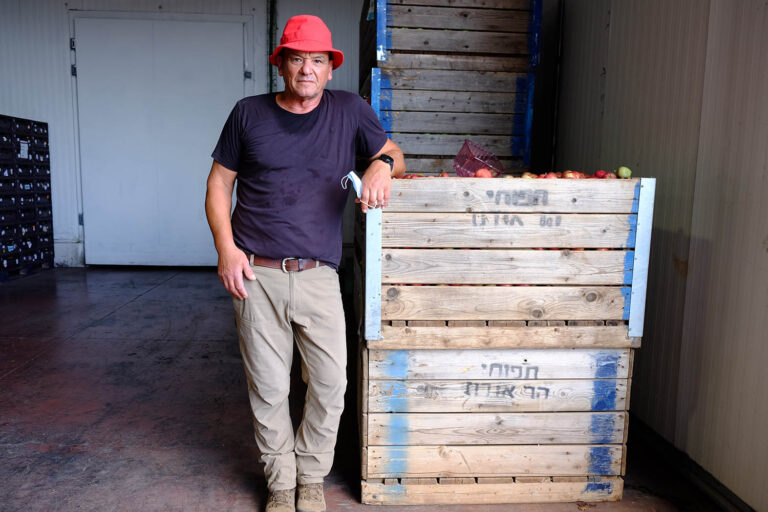
The next stop on the tour is Moshav Ramot Naftali. There, Doron Sassi grows pears on over 200 dunams (50 acres) of orchards. As Sassi hands the committee chairman a pear, he provides a quick explanation of the pear economy.
For the last decade, the amount he receives for one kilogram of pears is 3.5 shekels per kilo, while the sales price at the Rami Levy supermarket in nearby Kiryat Shmona stands at 15 shekels per kilo. This means that it is extremely difficult for him as a farmer to make a profit, let alone cover basic costs, while the supermarket chains pocket the change.
He adds that the total import of pears and apples stood at 50,000 tons last year, under a customs cap of 1.5 per kilo.
“Even today, the growers can barely make ends meet,” Sassi explained. “If the customs price falls, the farmers will not receive more than 2.5 shekels per kilo. Who would willingly stay to work here after that?”
Sassi's fruit packing plant once served 115 small family farms, roughly 2,500 dunams (around 620 acres) of apple and pear orchards and vineyards in total. The moshav wants to continue to establish and develop itself as a business, but due to declining profitability and rising prices, a number of growers have stopped sending their produce to Sassi. Now, only 30 families continue to send their produce to the plant.
“Does the state want us to work with the reform? That’s totally fine. But they should help us with the price of water,” Sassi said.
The Israel Fruit Growers Association reports that in Israel, farmers pay about 2.5 shekels per cubic meter of water, while in most major countries, it costs around 40 agorot (roughly 12 cents). The same price imbalance goes for pesticides and manpower as well. Sassi also mentions that water prices rose by ten agorot (ten cents) recently, explaining that his total water costs comes out to 300,000 shekels.
“And they [the government] say we can import our produce cheaper and we’ll be competitive? So let’s talk about workers’ wages and quotas for foreign workers,” Sassi said with frustration.
“And if government support will be given directly to the farmers, then it needs to be monitored so that money is not just handed out to any farmer listed in a directory and actually given to active farmers,” he says, referring to part of the reform that would give farmers direct compensation of 100 shekels (about $30) per quarter acre of land.
At the last stop on the tour, the group stands outside the new poultry farm on the outskirts of Moshav Dalton. Moshe Sassi [no relation to Doron] reflects proudly on the fresh crops coming out of the Galilee.
“Look what amazing peaches [we have],” he said with a huge smile on his face. “Where else can you get such beautiful peaches? You get 5 shekels per kilo for it. [Supermarket chain] Rami Levy sells for 22 shekels per kilo.”
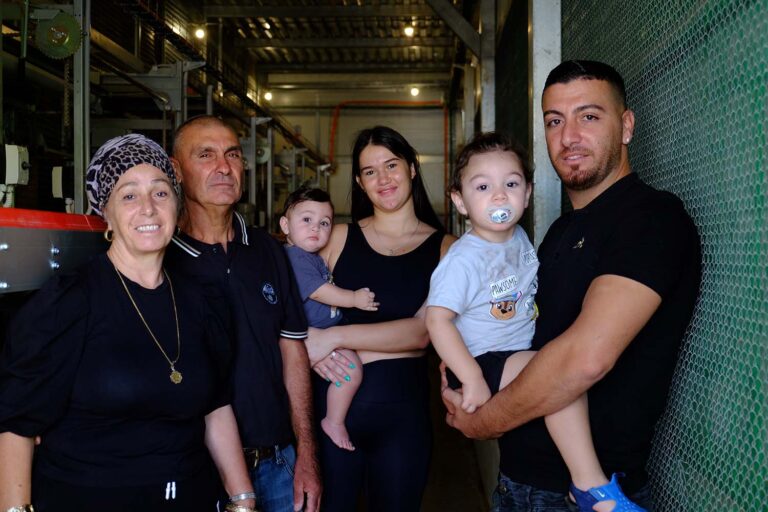
“The farming reform could very well dismantle our community”
From Manara to Ramot Naftali to Dalton, similar concerns arise among the northern farming communities when it comes to the reform.The fact that the reform is being debated in the Economics Committee reassures them slightly, as MK Bitton is attentive to the farmers input.
“Agriculture provides an opportunity for livelihoods, border and food security; and a combination of tourism and agriculture can bring livelihoods not only for farmers,” Bitton said.
Despite this, farmers expressed the fear that the real threat comes from finance and agriculture ministers highly determined to pass the reform.
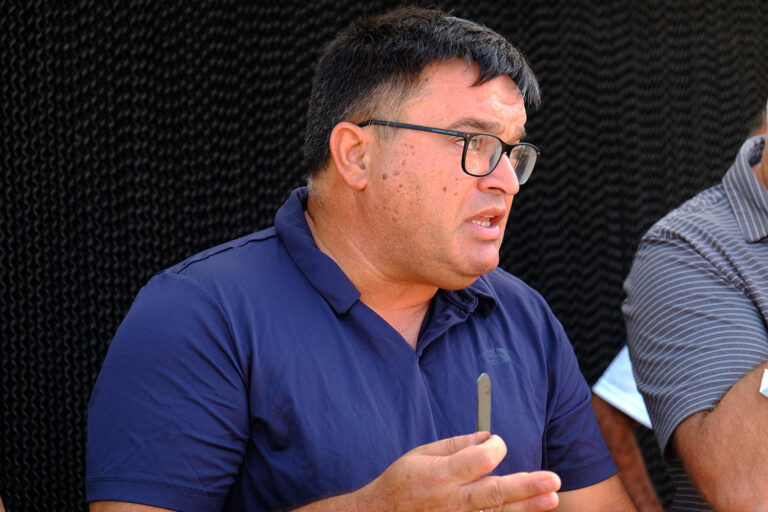
“The Ministers of Finance and Agriculture accused us of being bad farmers,” said Yaron Belhassan, Secretary General of the Israel Fruit Growers Association and farmer at Ramot Naftali.
“Thousands of people have invested millions of shekels in the industry here so that it will be the most efficient agriculture in the world, the best in the world. But it also has the highest costs in the world,” Belhassan continued. “Import without tariffs is a quick death blow to all Israeli farmers. The first thing that needs to be done is to give money for development and then issue tariffs.”
Moti Elkabetz is the secretary of the Poultry Breeders Association and head of the chicken coops of Moshav Safsuma. Elkabetz leads the fight against the poultry reform, managing to remove it from the Arrangements Law, and claims that the reform will push farmers into poverty.
“Without the planned economy within the poultry industry, it will cease to exist as a ‘family business,’” he asserted.
“There is no justification for building a large poultry farm here [in the north], since it is more feasible to set up large ones in the center of the country. If they build down there, then there will be 3,000 poor families here, and the regional councils will turn into welfare centers,” Elkabetz continued.
“Terrorist attacks or security situations have yet to force people to leave [Moshav] Avivim. But the poultry farming reform could very well dismantle our community,” added Shimon Bitton, another member of the poultry industry.
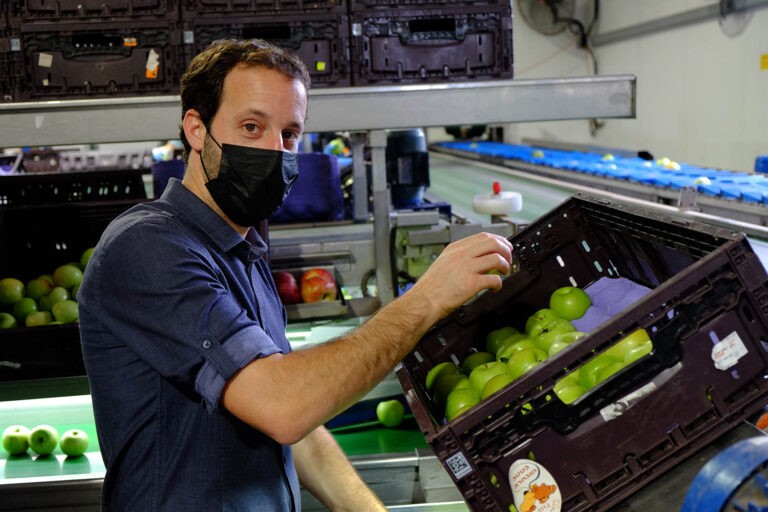
Opposition MK Nir Barkat (Likud) spoke out against the controversial reforms.
“The starting point of the reform is wrong – the agriculture industry isn’t the textiles industry and we cannot just leave it out to dry. We need to understand [from the coalition parties] how they plan for agricultural exports to jump from 5 billion shekels to 50 billion shekels a year,” he said.
“We’re talking about fellow Israelis who laboriously grow our fruits, vegetables and eggs. People who also fearlessly keep us safe on the border [with Lebanon],” says MK Ram Shefa (Labor), who led the push for removing the poultry reform from the Arrangements Law. “Our job [as lawmakers] now is not to abruptly bring about reforms, but to provide a plan that will bring about a change in growth and prosperity for the agriculture industry.”






